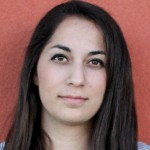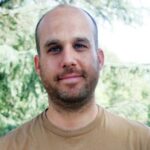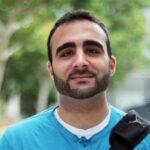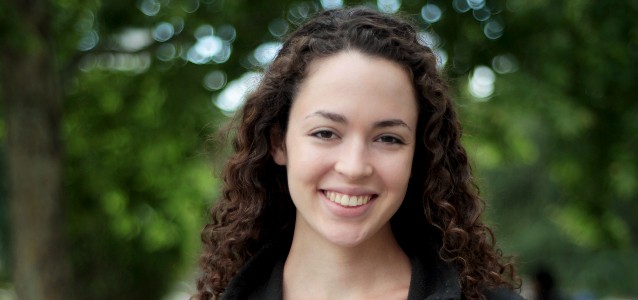Being both an Israeli-Jewish student and a Middle Eastern and South Asian (ME/SA) major, the past few months have been quite an experience for second-year student and Aggies for Israel member Mandy Losk.
“I kind of signed up for it. I thought it would be a less Israeli-friendly major than others, so I expected a lot of difficulty during divestment time,” Losk said. “There have been days that I have been scared to deal with people who are really unhappy with me.”
Growing up in a Jewish community and visiting Israel as a teenager, Losk said she has been exposed to the Israeli-Palestinian conflict for much of her life. But on her first trip to Israel, Losk said she was surprised at what she witnessed.
“It really surprised me because what we were hearing on the news in America was really different than what was happening there,” Losk said. “I decided I wanted to focus on the area as my major, and wanted to learn as much as I could about the Israeli-Palestinian conflict.”
When the resolution was initially introduced to UC Davis, Losk was a first-year student trying to balance the views of friends in her major with those of friends from Hillel House, the foundation for Jewish campus life.
“A lot of my friends are in my classes, and they are very pro-divestment. But then I would go to Hillel, and my friends were very anti,” Losk said. “It was the first time in my life that I was hearing so many negative things about Israel. I felt very confused, like I was being torn in different directions.”
This year, Losk went back to Israel to see first-hand how the situation abroad has changed. On her visits to controversial places like the West Bank, Losk realized how two-sided the conflict really was.
“It was pretty mind opening, as I had to travel around in a bulletproof bus,” Losk said. “It opened my eyes to how complicated the situation really is.”
Seeing the double-sidedness of the conflict gave Losk a newly defined perspective when the divestment resolution came back to campus this year.
“I would be a fool and a liar to say that bad stuff didn’t happen in those areas. But this resolution only showed one side of the bad stuff,” Losk said. “It was more anti-Israeli than it was pro-Palestinian. I do sympathize with the suffering that is happening. But, it’s not just one people that is suffering, or just one government that is contributing to it either.”
Since the resolution has been introduced on campus and Losk has taken a more active role on the anti-divestment side, she has faced the challenge of having the minority opinion in her classes.
“It’s been really hard to be honest, it’s a giant elephant in the room,” Losk said. “I’ve gotten my own fair share of dirty looks. In the actual classes, there were a few days that I was really scared to go.”
Although Losk made it clear that she was and is not worried about her physical safety, she said she has been experiencing a feeling of ostracization, one of being singled out by a community that was very angry towards another part of her life.
“It’s not the oppressed and the oppressor. Both sides are hurting, not just one,” Losk said. “There was a lot of emotion and conflict and anger, but it doesn’t need to be that way. It’s time to change that, to work together instead of choosing sides. To start making change, we need to start working together.”
After the senate meeting ended, Losk agreed that the failing of the resolution was not a win for the anti-divestment side. Instead, Losk said working on a bill where both communities are involved is the true solution to the campus issue.
“We didn’t choose to be defensive, but we were automatically put in a defensive position. We could feel the hate in that room,” Losk said. “How can you say it was a victory if awful things were said? I was very sad that it had to go this way.”
RITIKA IYER can be reached at features@theaggie.org.
Photo by Abby Alcala.









